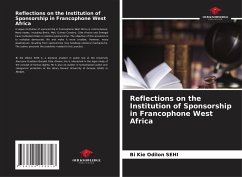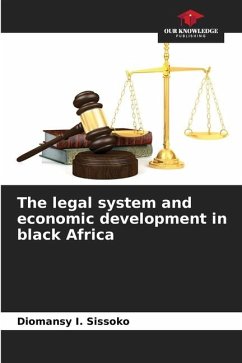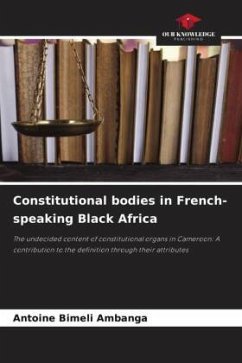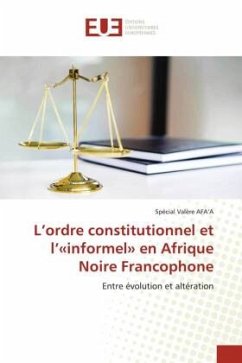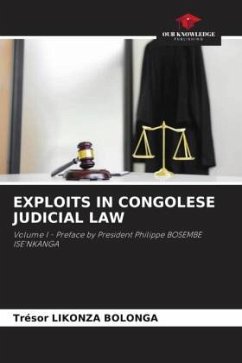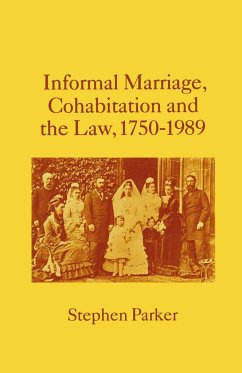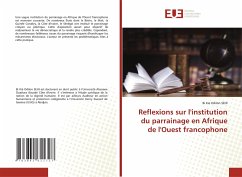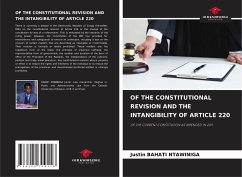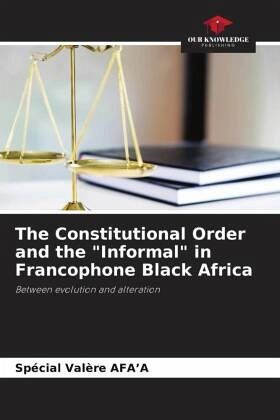
The Constitutional Order and the "Informal" in Francophone Black Africa
Between evolution and alteration
Versandkostenfrei!
Versandfertig in 6-10 Tagen
53,99 €
inkl. MwSt.

PAYBACK Punkte
27 °P sammeln!
The constitutional order in French-speaking black Africa is increasingly under the sway of what can be called the "informal". This is an observation that has been made in view of the emergence of informal constitutional changes since the 1990s. The latter have become diffuse and are nowadays perceived either as vectors of democratization of the constitutional order outside constitutional formalism or as factors of alteration of written constitutionalism. Analyzed in a progressive movement, they are at the origin of an alternative constitutive process of elaboration and revision of constitution...
The constitutional order in French-speaking black Africa is increasingly under the sway of what can be called the "informal". This is an observation that has been made in view of the emergence of informal constitutional changes since the 1990s. The latter have become diffuse and are nowadays perceived either as vectors of democratization of the constitutional order outside constitutional formalism or as factors of alteration of written constitutionalism. Analyzed in a progressive movement, they are at the origin of an alternative constitutive process of elaboration and revision of constitutional rules, by choice or by force. Thus, the "informal", which is based on the one hand on constitutional practices, notably constitutional custom, constitutional conventions, institutional practices and contingent normative instruments such as political agreements and transitional constitutions, and on the other hand on jurisprudential writing, the double consequence of which is the emergenceof a jurisprudential constituent power and the development of a jurisprudential constitutional law, conveys the idea of a "constitutional normativity".



